
Jeonju Hanok Village: A Timeless Journey in the Heart of Jeonju
Step into the enchanting world of Jeonju Hanok Village, a picturesque neighbourhood that beautifully preserves the traditional Korean way of life. Located in Jeonju, South Korea, this village boasts over 800 well-preserved Hanok houses, offering visitors a unique glimpse into the architectural elegance of the Joseon Dynasty. Wander through the narrow alleys and marvel at the intricate designs of the Hanok roofs, wooden beams, and paper windows. Each house tells its own story, inviting you to explore the rich history and cultural heritage that Jeonju is famous for. The village is a living museum where traditional customs and modern life coexist harmoniously. Jeonju Hanok Village is not just a feast for the eyes; it tantalizes your taste buds too. The village is renowned for its culinary delights, especially Jeonju bibimbap, a colourful and nutritious rice dish. Street food stalls and quaint eateries line the streets, offering a variety of local delicacies that will leave you craving for more. Adding to the village's charm are its numerous cultural experiences. Participate in a traditional tea ceremony, try on a Hanbok (Korean traditional clothing), or learn the art of Korean calligraphy. These activities provide a deeper understanding and appreciation of Korean culture, making your visit even more memorable.
Local tips in Jeonju Hanok Village
- Visit early in the morning or late in the afternoon to avoid crowds and get the best photo opportunities.
- Wear comfortable shoes as the village's cobblestone streets can be uneven.
- Don't miss the Jeonju Traditional Wine Museum to learn about and sample traditional Korean alcohol.
- Try staying overnight in a Hanok guesthouse for a unique and immersive experience.
- Keep some cash handy as many street vendors and small shops may not accept credit cards.
Jeonju Hanok Village: A Timeless Journey in the Heart of Jeonju
Step into the enchanting world of Jeonju Hanok Village, a picturesque neighbourhood that beautifully preserves the traditional Korean way of life. Located in Jeonju, South Korea, this village boasts over 800 well-preserved Hanok houses, offering visitors a unique glimpse into the architectural elegance of the Joseon Dynasty. Wander through the narrow alleys and marvel at the intricate designs of the Hanok roofs, wooden beams, and paper windows. Each house tells its own story, inviting you to explore the rich history and cultural heritage that Jeonju is famous for. The village is a living museum where traditional customs and modern life coexist harmoniously. Jeonju Hanok Village is not just a feast for the eyes; it tantalizes your taste buds too. The village is renowned for its culinary delights, especially Jeonju bibimbap, a colourful and nutritious rice dish. Street food stalls and quaint eateries line the streets, offering a variety of local delicacies that will leave you craving for more. Adding to the village's charm are its numerous cultural experiences. Participate in a traditional tea ceremony, try on a Hanbok (Korean traditional clothing), or learn the art of Korean calligraphy. These activities provide a deeper understanding and appreciation of Korean culture, making your visit even more memorable.
Iconic landmarks you can’t miss
Jeonju Hanok Village
Experience the timeless beauty of traditional Korean culture in Jeonju Hanok Village, where history, cuisine, and art come together.
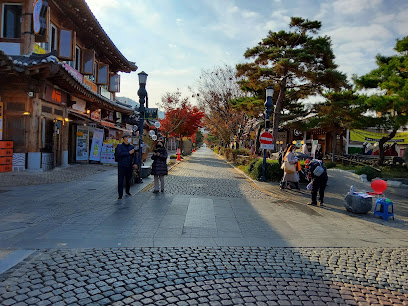
Jeonju Hyanggyo
Discover the tranquil beauty and rich heritage of Jeonju Hyanggyo, a historical landmark showcasing Korea's Confucian legacy.
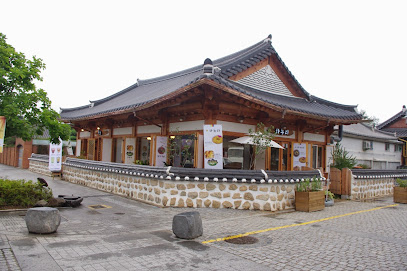
Gyeonggijeon Shrine
Discover the royal legacy of Korea at Gyeonggijeon Shrine, a historical landmark in Jeonju showcasing beautiful architecture and rich cultural heritage.
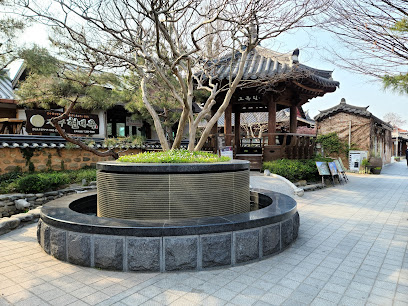
Jaman Mural Village
Explore the colorful streets of Jaman Mural Village, where every wall tells a story through captivating murals and artistic expressions.
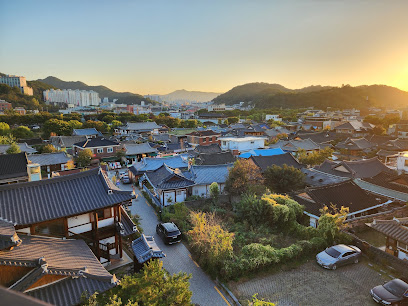
Cheongyeollu
Discover the serene beauty of Cheongyeollu in Jeonju, a captivating fusion of nature and culture that enchants every visitor.
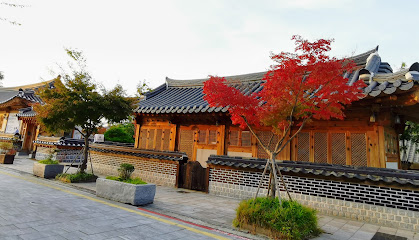
Jeonju Nanjang
Experience the fun and culture at Jeonju Nanjang, a theme park filled with thrilling rides, delicious food, and local traditions in Jeonju, South Korea.
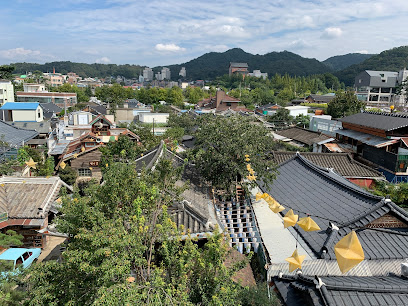
Omokdae
Discover the serene beauty and historical significance of Omokdae in Jeonju, a must-see landmark reflecting Korea's rich cultural heritage.
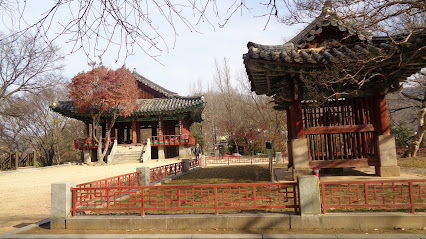
Hanbyeokdang Pavilion
Discover the elegance of Hanbyeokdang Pavilion, a historical site in Jeonju, where nature and culture intertwine in a serene setting.
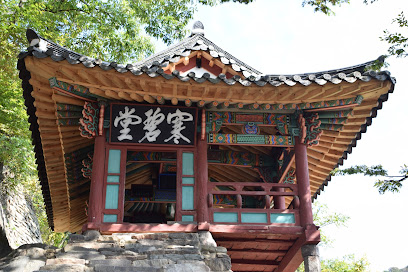
Jeonju Hanok Village History Museum
Explore the Jeonju Hanok Village History Museum for an enriching journey through Korea's vibrant culture and history, nestled in a stunning traditional setting.
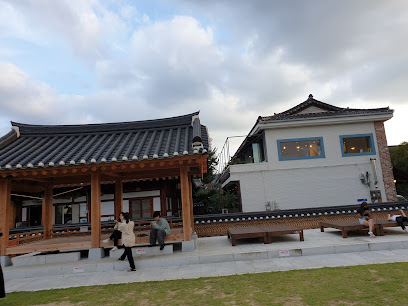
한옥마을 거리
Explore Jeonju Hanok Village, where traditional Korean culture meets exquisite cuisine in a picturesque setting.
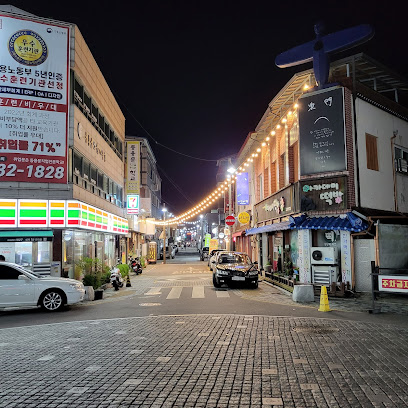
Unmissable attractions to see
Jeonju Hanok Village
Experience the timeless beauty and rich culture of Jeonju Hanok Village, a must-visit destination in Korea for all travelers seeking authentic experiences.
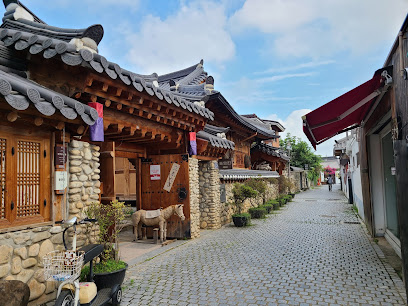
Deokjin Park
Discover the natural beauty and cultural richness of Deokjin Park in Jeonju, where serene landscapes meet vibrant traditions.
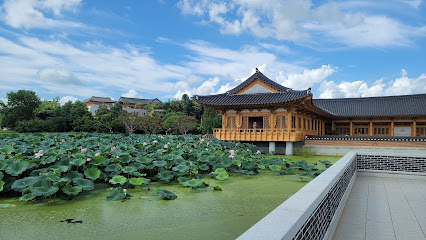
Jeonju Dreamland
Discover the magic of Jeonju Dreamland, an amusement park filled with thrilling rides, vibrant entertainment, and endless fun for all ages.
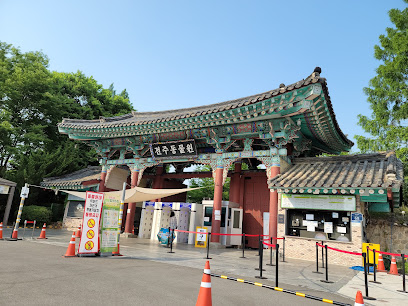
Jeonju Nanjang
Explore Jeonju Nanjang, a cultural theme park merging entertainment with the rich heritage of Jeonju, South Korea for an unforgettable experience.
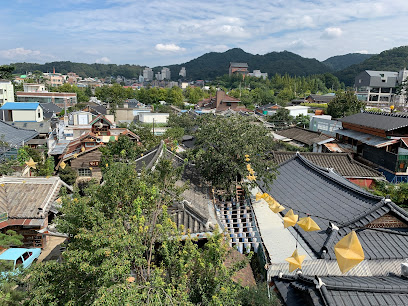
Jeonju Hanok Rail Bike Co.
Discover the charm of Jeonju with a unique rail bike experience, blending scenic beauty and adventure in one unforgettable ride.
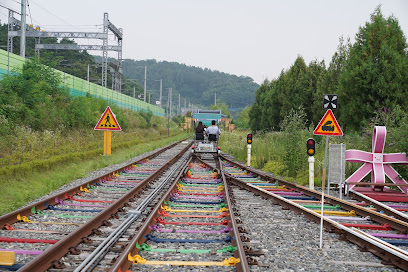
Essential places to dine
Veteran Kalguksu
Experience the authentic taste of Korea at Veteran Kalguksu in Jeonju - home to delicious handmade kalguksu noodles and traditional flavors.
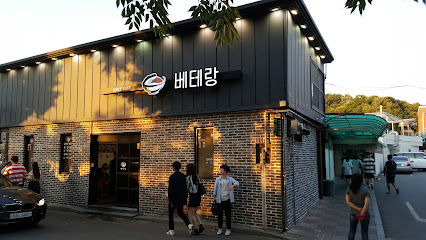
Hangugjib
Discover authentic Korean flavors at Hangugjib in Jeonju - where culinary tradition meets delightful dining experiences.
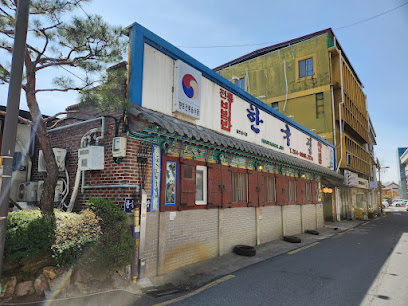
Jeonju Hyundaiok
Discover the essence of Korean cuisine at Jeonju Hyundaiok - where tradition meets taste in every delightful bite.
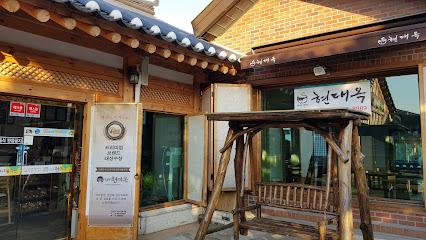
Gyodong Tteokgalbi
Experience authentic tteokgalbi at Gyodong Tteokgalbi in Jeonju – a culinary delight steeped in tradition and flavor.
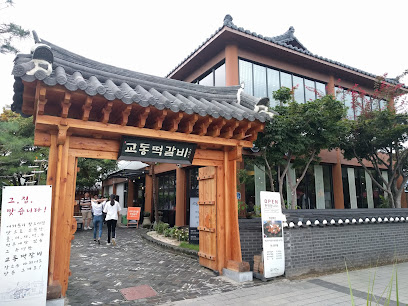
Giwa
Experience authentic Korean flavors at Giwa in Jeonju – where every dish tells a story.

Kkochdamjib
Experience the rich flavors of traditional Korean cuisine at Kkochdamjib in Jeonju - where every meal is a cultural journey.
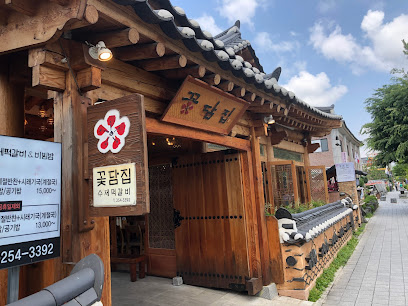
Yangbanga
Discover authentic Korean traditional full course meals at Yangbanga in Jeonju - A culinary journey through Korea's rich flavors.
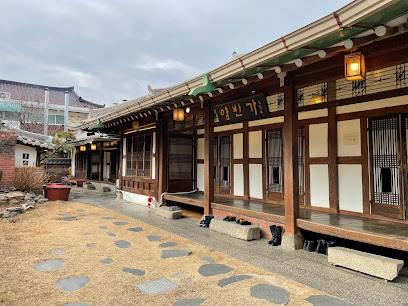
Jeonju hanok village restaurant jeonju is jeonju
Experience authentic Korean cuisine amidst the charming backdrop of Jeonju Hanok Village's traditional architecture.
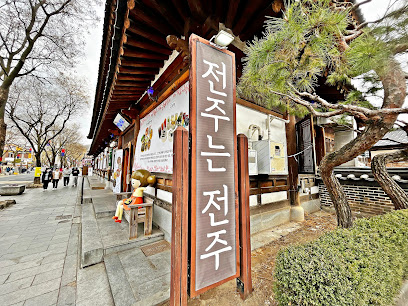
Hawaiian recipe
Experience the essence of Hawaii through authentic dishes in Jeonju's premier Hawaiian restaurant.
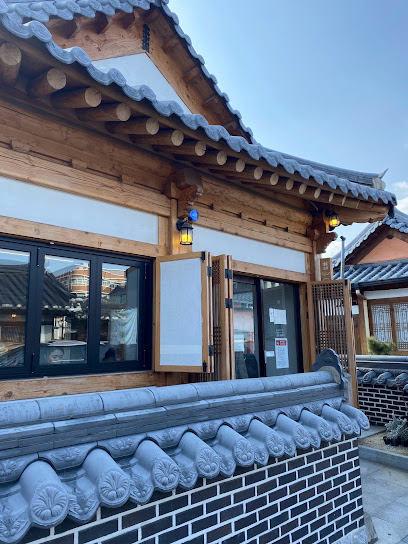
PNB 한옥마을3호점
Experience the rich flavors of traditional Korean cuisine in an enchanting Hanok setting at PNB 한옥마을3호점.
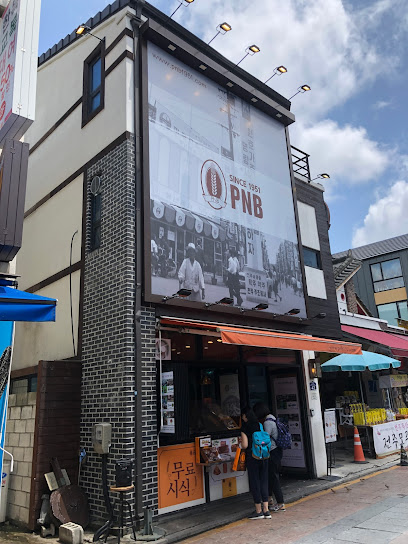
Markets, malls and hidden boutiques
Jeonju Hanok Village
Experience the beauty and culture of Jeonju Hanok Village, a traditional Korean neighborhood filled with history, cuisine, and arts.
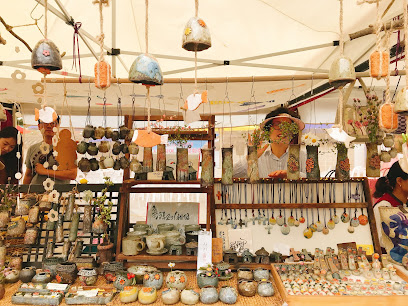
Kakao Friends
Explore Kakao Friends in Jeonju: A whimsical stationery store filled with adorable character-themed products for fans and tourists alike.
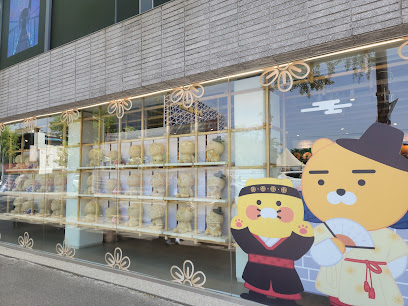
Jeonju hanok village hanbok rental HANBOKNAM
Immerse yourself in Korean culture with stunning hanbok rentals at Hanboknam in the historic Jeonju Hanok Village.
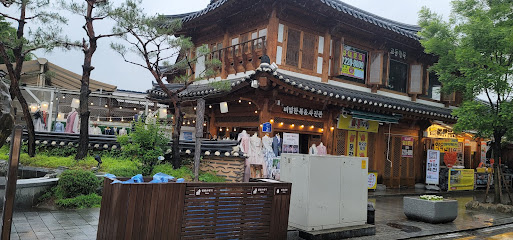
Jeonju Crafts Exhibition Hall
Explore the essence of Korean craftsmanship at Jeonju Crafts Exhibition Hall, where art, culture, and innovation come together.
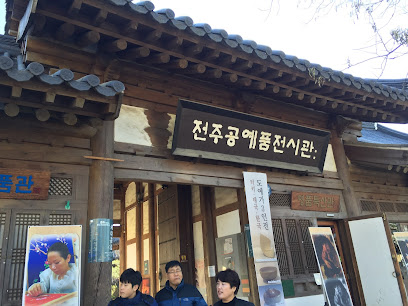
풍년제과우리밀빵
Indulge in the sweet flavors of Jeonju at 풍년제과우리밀빵, a delightful dessert shop offering artisan pastries and local delights.
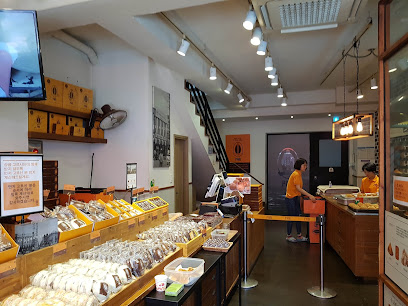
Bluestone Pottery
Immerse yourself in the enchanting world of pottery at Bluestone Pottery, where tradition meets contemporary artistry in Jeonju.

Acorn Caricature
Explore Acorn Caricature in Jeonju – a unique gift shop celebrating artistic expression with personalized caricatures and local souvenirs.

Hi Jeonju
Explore Hi Jeonju, a captivating gift shop filled with unique local crafts and souvenirs that embody the cultural essence of Jeonju.

한옥마을바람공방
Experience the essence of Korean craftsmanship at Hanok Village Wind Workshop, where traditional artistry meets modern elegance in leather goods.

전라난백화점
Explore the enchanting world of local crafts and unique gifts at Jeonju's 전라난백화점, where tradition meets contemporary artistry in Jeollabuk-do.

Essential bars & hidden hideouts
Bar Cold Dawn
Discover the vibrant atmosphere and unique cocktails at Bar Cold Dawn, Jeonju's must-visit cocktail bar for a memorable night out.
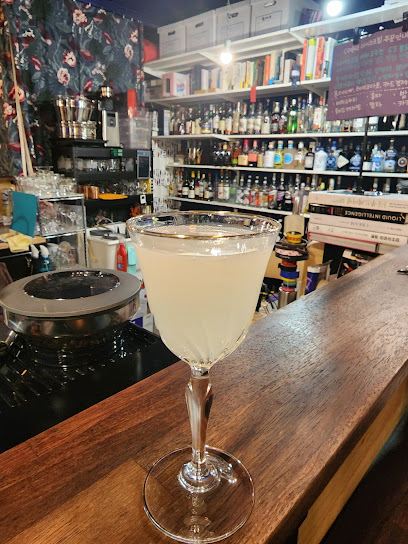
Jinju Doga
Discover the vibrant nightlife of Jeonju at Jinju Doga, where modern cocktails meet traditional Korean hospitality in a lively atmosphere.
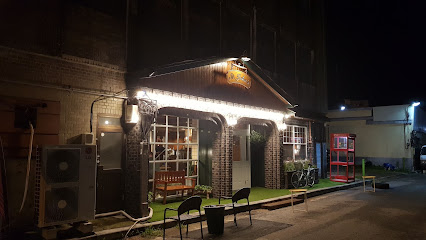
Deepin
Experience the vibrant pub culture of Jeonju at Deepin, a must-visit destination for beer lovers and nightlife enthusiasts.
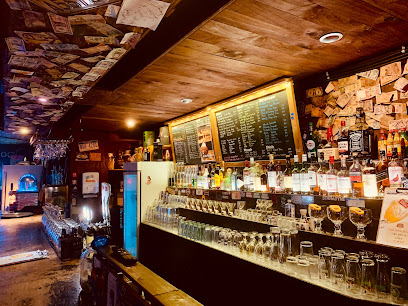
술로시티
Explore 술로시티, a vibrant bar in Jeonju-si, serving innovative cocktails and local brews in a lively atmosphere perfect for socializing.
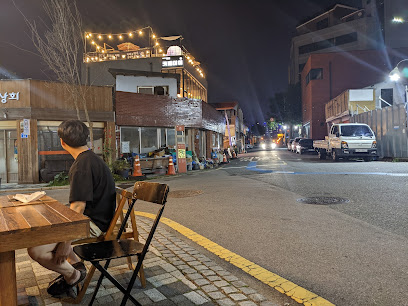
야간비행
Experience the vibrant nightlife at 야간비행, Jeonju's premier bar for expertly crafted drinks and a lively atmosphere.
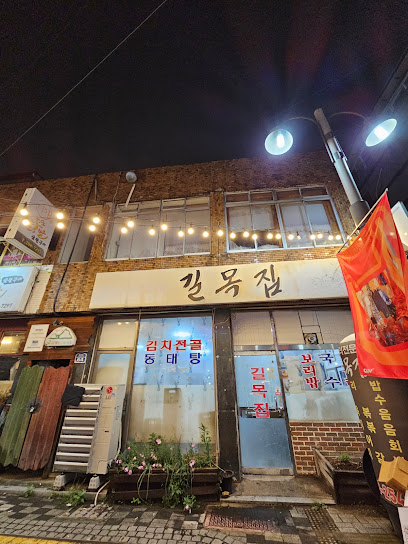
Pub Ink
Experience the vibrant nightlife at Pub Ink in Jeonju, where local charm meets a diverse drink selection in a cozy atmosphere.
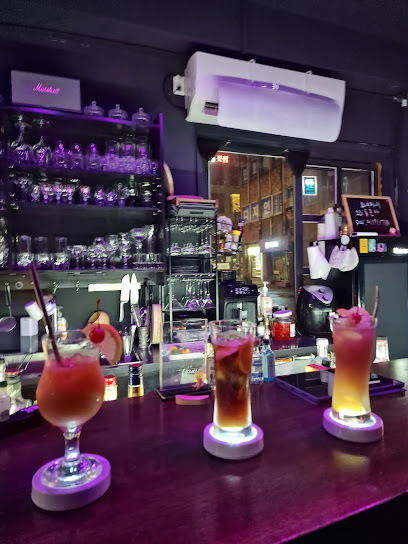
라디오스타
Discover the vibrant nightlife at 라디오스타, a popular bar in Jeonju, serving a delightful array of drinks and local charm.
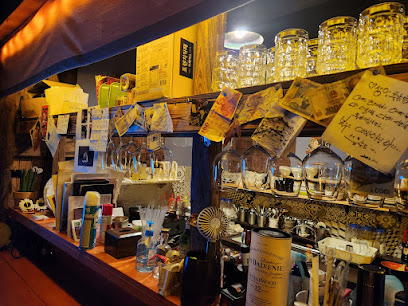
미술관2쥬크박스
Experience the fusion of art and nightlife at 미술관2쥬크박스, a lively pub in Jeonju-si offering a unique atmosphere and delightful drinks.
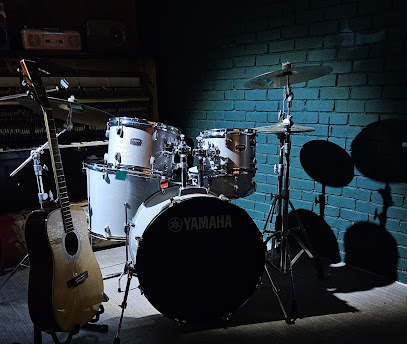
Club The Oasis
Experience the electrifying nightlife at Club The Oasis in Jeonju, where vibrant music and a lively atmosphere create unforgettable nights.
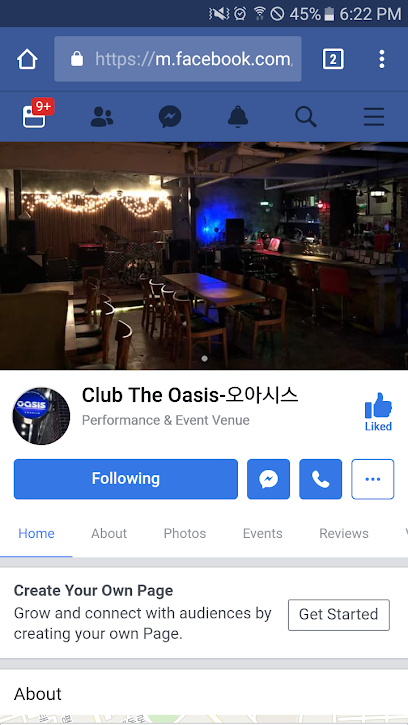
진테이블(중앙전자)
Discover the vibrant nightlife of Jeonju at 진테이블(중앙전자), a trendy bar offering innovative cocktails and a welcoming atmosphere.

Local Phrases
-
- Hello안녕하세요
[annyeonghaseyo] - Goodbye안녕히 가세요
[annyeonghi gaseyo] - Yes네
[ne] - No아니요
[aniyo] - Please/You're welcome부탁합니다/천만에요
[butakhamnida/cheonmaneyo] - Thank you감사합니다
[gamsahamnida] - Excuse me/Sorry죄송합니다
[joesonghamnida] - How are you?어떻게 지내세요?
[eotteoke jinaeseyo?] - Fine. And you?잘 지내고요. 당신은?
[jal jinaegoyo. dangsineun?] - Do you speak English?영어 할 수 있어요?
[yeongeo hal su isseoyo?] - I don't understand이해하지 못해요
[ihaehaji mothaeyo]
- Hello안녕하세요
-
- I'd like to see the menu, please메뉴를 보여주세요
[menyureul boyeojuseyo] - I don't eat meat고기 안 먹어요
[gogi an meogeoyo] - Cheers!건배!
[geonbae!] - I would like to pay, please계산해 주세요
[gyesanhae juseyo]
- I'd like to see the menu, please메뉴를 보여주세요
-
- Help!도와주세요!
[dowajuseyo!] - Go away!가세요!
[gaseyo!] - Call the Police!경찰을 불러주세요!
[gyeongchareul bulleojuseyo!] - Call a doctor!의사를 불러주세요!
[uisareul bulleojuseyo!] - I'm lost길을 잃었어요
[gireul ilheosseoyo] - I'm ill아픈데요
[apeundeyo]
- Help!도와주세요!
-
- I'd like to buy...이걸 사고 싶어요
[igeol sago sipeoyo] - I'm just looking구경만 하고 있어요
[gugyeongman hago isseoyo] - How much is it?이거 얼마에요?
[igeo eolmaeyo?] - That's too expensive너무 비싸요
[neomu bissayo] - Can you lower the price?가격을 깎아 주실 수 있나요?
[gageogeul kkakka jusil su innayo?]
- I'd like to buy...이걸 사고 싶어요
-
- What time is it?지금 몇 시에요?
[jigeum myeot siyeyo?] - It's one o'clock한 시에요
[han siyeyo] - Half past (10)10시 반
[sip si ban] - Morning아침
[achim] - Afternoon오후
[ohu] - Evening저녁
[jeonyeok] - Yesterday어제
[eoje] - Today오늘
[oneul] - Tomorrow내일
[naeil] - 1일
[il] - 2이
[i] - 3삼
[sam] - 4사
[sa] - 5오
[o] - 6육
[yuk] - 7칠
[chil] - 8팔
[pal] - 9구
[gu] - 10십
[ship]
- What time is it?지금 몇 시에요?
-
- Where's a/the...?어디에 ...이/가 있어요?
[eodie ...i/ga isseoyo?] - What's the address?주소가 뭐에요?
[jusoga mwoeyo?] - Can you show me (on the map)?지도로 보여주세요
[jidoro boyeojuseyo] - When's the next (bus)?다음 (버스) 언제 와요?
[daeum (beoseu) eonje wayo?] - A ticket (to ....)표 한 장 (....으로)
[pyo han jang (....euro)]
- Where's a/the...?어디에 ...이/가 있어요?
History of Jeonju Hanok Village
-
Jeonju Hanok Village's history dates back to the Joseon Dynasty (1392-1910), when Jeonju served as a key administrative and cultural center. The village was established as a representation of traditional Korean architecture, with over 800 hanoks (traditional Korean houses) preserved to showcase the lifestyle of the era. This area not only served as a home for the Yangban (noble class) but also played a significant role in the development of Korean Confucian culture.
-
During the Joseon Dynasty, Jeonju was recognized as a hub for Confucianism, leading to the establishment of various educational institutions, including the Jeonju Hyanggyo (Confucian school). The village became a center for scholarly activity and governance, contributing to the development of Korean identity and culture. This period saw the flourishing of arts, literature, and traditional customs that are still celebrated today.
-
The Japanese occupation of Korea from 1910 to 1945 brought significant changes to Jeonju Hanok Village. Many of the traditional practices and customs were suppressed, and modern influences began to seep into the culture. Despite this, the village retained its charm and historical significance, serving as a symbol of resistance and the desire to preserve Korean heritage during a challenging period.
-
In the late 20th century, efforts intensified to preserve Jeonju Hanok Village as a cultural heritage site. The 1990s saw a revival of interest in traditional architecture and culture, leading to government initiatives aimed at restoring and maintaining the hanoks. The village was officially designated as a cultural heritage site, solidifying its importance in representing traditional Korean life.
-
Today, Jeonju Hanok Village is a vibrant cultural destination, attracting both domestic and international tourists. It hosts various cultural events, traditional craft workshops, and culinary experiences, showcasing the famous Jeonju bibimbap. The village remains a living testament to Korea's rich history, blending traditional elements with modern interpretations, thus fostering a deeper understanding of Korean culture and heritage.
Jeonju Hanok Village Essentials
-
Jeonju Hanok Village is easily accessible from various parts of Jeonju. If you're arriving by train, the Jeonju Station is about 10 kilometers away. From there, you can take a taxi or a local bus (Bus 5, 11, or 30) to reach the village. For those coming from the Jeonju Intercity Bus Terminal, local buses (Bus 5, 11, or 30) also provide convenient service to the Hanok Village. Alternatively, taxis are readily available and provide a quick and comfortable option.
-
Jeonju Hanok Village is a pedestrian-friendly area, making it easy to explore on foot. Many of the traditional houses, shops, and attractions are within a short walking distance. Bicycles are available for rent at local shops, which can enhance your experience of the village. Local buses connect to other neighborhoods in Jeonju, while taxis are plentiful for those who prefer a quicker mode of transport.
-
Jeonju Hanok Village is generally safe for tourists, but it's always prudent to exercise caution. Petty crimes such as pickpocketing can occur in crowded areas, so remain vigilant and keep your belongings secure. There are no specific high-crime areas targeting tourists, but it is advisable to avoid isolated spots after dark.
-
In case of an emergency, dial 119 for fire or medical assistance and 112 for police. Local hospitals and clinics are available in Jeonju, with the nearest being Jeonbuk National University Hospital. It is recommended to have travel insurance that covers medical emergencies. For minor health issues, pharmacies are readily available throughout the village.
-
Fashion: Do dress modestly and comfortably, especially if visiting temples or traditional sites. Don't wear overly revealing clothing. Religion: Do respect local customs and traditions, such as removing your shoes when entering certain establishments. Public Transport: Do give up your seat for the elderly and pregnant women. Don't eat or drink on buses. Greetings: Do greet people with a slight bow or handshake. Eating & Drinking: Do try local dishes like bibimbap and accept food offered by locals. Don't waste food, as it is considered disrespectful.
-
To experience Jeonju Hanok Village like a local, visit the traditional markets where you can find handmade crafts and local delicacies. Attend a tea ceremony in one of the hanoks for an authentic cultural experience. Engage with local artisans, who are often eager to share their craft. Try to visit during the Jeonju International Film Festival in April for a vibrant atmosphere and local cultural events.
Nearby Cities to Jeonju Hanok Village
-
Things To Do in Daejeon
-
Things To Do in Gwangju
-
Things To Do in Suncheon
-
Things To Do in Daegu
-
Things To Do in Mokpo
-
Things To Do in Suwon
-
Things To Do in Andong
-
Things To Do in Busan
-
Things To Do in Incheon
-
Things To Do in Gyeongju
-
Things To Do in Ulsan
-
Things To Do in Seoul
-
Things To Do in Pohang
-
Things To Do in Chuncheon
-
Things To Do in Jeju City









